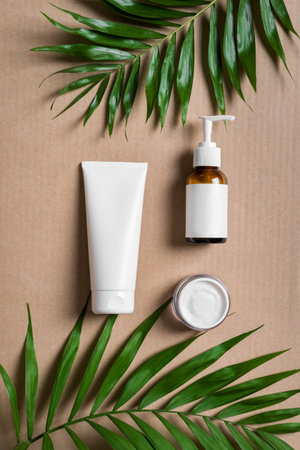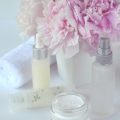Introduction to Moisturising in the UK Climate
Hydration is the cornerstone of every effective skincare routine, especially when it comes to navigating the unique climate of the United Kingdom. The British weather is famously unpredictable—one moment it’s raining, the next it’s windy, and then you might catch a rare glimpse of sunshine. These constant fluctuations can leave skin feeling dry, tight, or even irritated. That’s why understanding moisturising ingredients tailored for the UK climate is absolutely vital.
British skin faces specific challenges due to frequent shifts between damp cold and indoor heating, both of which can strip away natural moisture. This makes hydrating skincare not just a luxury but a daily necessity for maintaining a healthy complexion. Whether you commute in London’s drizzle or brave the brisk Scottish winds, your skin needs robust protection against environmental stressors.
The following table outlines how typical British weather conditions impact your skin and highlights why choosing the right moisturising ingredients matters:
| UK Weather Condition | Impact on Skin | Why Hydration Helps |
|---|---|---|
| Rain & Humidity | Can cause loss of natural oils; leaves skin dull or congested | Restores balance and locks in moisture without clogging pores |
| Wind & Cold | Leads to dryness, redness, and irritation | Strengthens skin barrier and soothes sensitivity |
| Central Heating Indoors | Dehydrates skin rapidly; causes flakiness | Deeply nourishes and prevents water loss |
In this series, we’ll explore the top 10 moisturising ingredients that every UK skincare routine should include—formulated to keep your skin hydrated, resilient, and glowing no matter what the British weather throws at you.
2. Hyaluronic Acid: The Ultimate Hydration Hero
When it comes to combating the unpredictable British weather—think chilly winds, drizzling rain, and even the rare sunny spell—hyaluronic acid is a must-have in any UK skincare routine. This powerhouse ingredient is celebrated for its remarkable ability to attract and retain up to 1,000 times its weight in water, delivering deep hydration and ensuring your skin stays plump, supple, and resilient no matter the climate.
Why Hyaluronic Acid Works for UK Skin
With frequent shifts from central heating indoors to damp conditions outside, British skin is constantly losing moisture. Hyaluronic acid acts as a magnet for hydration, locking water into your skin’s surface layers without feeling greasy or heavy—a crucial benefit for those prone to congestion or oiliness during milder months.
Benefits of Hyaluronic Acid
| Benefit | Description |
|---|---|
| Deep Moisturisation | Binds water to skin cells, keeping your complexion dewy despite harsh weather. |
| Lightweight Texture | Absorbs quickly and works well under makeup or SPF, perfect for busy UK mornings. |
| Suits All Skin Types | Non-irritating and fragrance-free options available—even for sensitive or eczema-prone skin. |
Expert Tip:
For best results, apply hyaluronic acid serum to slightly damp skin after cleansing, then seal with a nourishing moisturiser. This simple step can transform how your skin handles the classic British drizzle or biting winter chill.

3. Glycerin: Britain’s Trusted Humectant
Glycerin stands as a hero ingredient in countless British skincare routines, and for good reason. This powerhouse humectant is celebrated for its unique ability to draw moisture from the air into the skin—a property that proves indispensable during the UK’s long, chilly months and periods of relentless indoor heating. As many UK households rely on central heating, which often strips the air of humidity, glycerin steps in to help counteract that parched, tight feeling.
Why is glycerin so vital for British skin?
| Benefit | How It Helps in the UK |
|---|---|
| Draws Moisture From Air | Keeps skin hydrated even in dry, centrally-heated homes |
| Non-Greasy Finish | Perfect for layering under makeup or SPF—ideal for busy urban lifestyles |
| Gentle on Skin | Suitable for sensitive complexions common among Britons facing unpredictable weather changes |
| Boosts Barrier Function | Helps repair skin after exposure to wind and rain, classic to the British climate |
Incorporating glycerin into your daily regime is effortless; it pairs well with both water-based serums and heavier creams. Whether you’re battling winter dryness or bracing against brisk coastal winds, glycerin-rich products can transform your skin’s comfort and resilience—making this ingredient truly indispensable across the UK.
4. Ceramides: Repairing Skin’s Natural Barrier
When it comes to enduring the unpredictable British climate, ceramides are a true saviour for your skincare routine. The UK’s blustery winds and frequent temperature shifts can leave skin feeling vulnerable, tight, and prone to irritation. Ceramides act as the essential lipids that form the building blocks of your skin barrier, locking in moisture while shielding against environmental aggressors.
How Ceramides Benefit British Skin
These moisture-retaining molecules work wonders for compromised or sensitive skin types—a common concern during cold, damp British winters or after braving brisk coastal breezes. By replenishing lost ceramides, you help restore the skin’s natural defence system, preventing dryness and supporting a smooth, supple complexion.
Ceramides at a Glance
| Benefit | Why It Matters in the UK |
|---|---|
| Repairs Skin Barrier | Protects against windburn and fluctuating weather |
| Retains Moisture | Keeps skin hydrated despite central heating and cold air |
| Soothes Sensitivity | Reduces redness from harsh conditions |
Expert Tip:
For best results, layer ceramide-rich serums or creams after cleansing but before heavier moisturisers. This technique ensures maximum absorption and strengthens your skin’s resilience—so you’re ready for whatever the British weather throws your way.
5. British Botanicals and Natural Oils
When it comes to keeping your skin hydrated, the UK has a rich tradition of harnessing local botanicals and natural oils. With a rising demand for clean beauty, British skincare enthusiasts are turning to homegrown ingredients that marry efficacy with eco-consciousness. Two stand-out examples are rosehip oil and oat extract, both celebrated for their moisturising power and gentle touch—perfect for the UK’s often changeable climate.
Why Choose British Botanicals?
Native ingredients not only support local agriculture but also tend to suit the skin needs of Britons, given their adaptation to the UK’s environment. These botanicals are less likely to irritate sensitive skin, making them ideal for those seeking a naturally soothing routine.
Locally Loved Moisturising Ingredients
| Ingredient | Main Benefits | How Its Used in Skincare |
|---|---|---|
| Rosehip Oil | Rich in essential fatty acids, vitamin C; deeply hydrates and helps brighten dull skin | Found in facial oils, creams, and serums; suitable for all skin types |
| Oat Extract | Soothes irritation, reduces redness, locks in moisture | Common in cleansers, moisturisers, and masks; particularly effective for dry or sensitive skin |
| Borage Oil | Packed with gamma-linolenic acid (GLA), supports barrier repair and hydration | Used in face oils and balms; favoured for mature or compromised skin barriers |
| Nettle Extract | Anti-inflammatory properties; calms and conditions the skin | Added to toners and creams for reactive skin types |
| Elderflower Extract | Antioxidant-rich; offers lightweight hydration while protecting against pollution | Infused into facial mists and light lotions; popular in summer skincare routines |
Cultural Embrace of Clean Beauty
The UK’s love affair with clean beauty is reflected in the widespread use of these native botanicals. British brands often spotlight these ingredients on their packaging and promote transparency about sourcing. Choosing moisturisers featuring rosehip oil or oat extract isn’t just a trend—it’s a nod to British heritage and a commitment to skin health that resonates with modern sensibilities.
6. Shea Butter and Squalane: Rich Emollients for Intense Hydration
Shea butter and squalane are powerhouse ingredients when it comes to deep hydration, making them essentials in any UK skincare routine—especially as the chillier months set in. Both ingredients are renowned for their ability to lock in moisture and soothe even the driest, most sensitive skin, which is a common concern across Britain’s climate.
Why Shea Butter?
Extracted from the nuts of the African shea tree, shea butter is packed with fatty acids and vitamins A, E, and F. It’s celebrated for its rich, creamy texture that melts into the skin, offering immediate comfort and long-lasting moisture. This makes shea butter particularly beneficial for those experiencing flakiness or irritation from central heating or brisk winds—a reality for many across the UK autumn and winter.
The Benefits of Squalane
Squalane, often derived from olives or sugarcane, mimics your skin’s natural oils. Unlike heavier emollients, it absorbs rapidly without leaving a greasy residue, making it ideal for layering under makeup or pairing with other hydrating products. Squalane also helps strengthen the skin barrier, which is essential for combating environmental stressors like pollution and cold snaps often experienced throughout the British Isles.
Comparing Shea Butter & Squalane
| Ingredient | Main Benefit | Best For |
|---|---|---|
| Shea Butter | Deep nourishment & soothing dryness | Very dry or rough patches (e.g., elbows, cheeks) |
| Squalane | Lightweight hydration & barrier support | Daily use on face & layering with serums |
How to Incorporate Them into Your Routine
Add a shea butter-enriched moisturiser to your evening regime during colder months for overnight repair. For daytime hydration, a serum or oil containing squalane can be layered underneath sunscreen to keep skin supple all day long. Those dealing with sensitivity will appreciate both ingredients’ gentle nature—neither is likely to trigger irritation or clog pores.
Together, shea butter and squalane offer a tailored solution for intense hydration that addresses both immediate comfort and long-term resilience against Britain’s famously unpredictable weather. With these two key emollients in your arsenal, your skin will feel nourished, protected, and ready to face whatever the UK forecast brings.
7. How to Layer Moisturising Ingredients for Maximum Effectiveness
To truly make the most of the top 10 moisturising ingredients in your British skincare routine, its vital to understand how to layer them for optimal absorption and efficacy. The unpredictable UK climate—from chilly winds to central heating—demands a strategic approach for lasting hydration. Here’s an expert guide to crafting your perfect moisture routine, tailored for morning and night.
Why Layering Matters
Layering allows each ingredient to work at its best, ensuring actives like hyaluronic acid penetrate deeply while occlusives lock in hydration. When done correctly, layering prevents product pilling and maximises benefits from every step.
Morning Routine: Dewy & Protected
Step |
Ingredient Focus |
Purpose |
|---|---|---|
1. Cleanse |
Ceramide-rich cleanser | Gentle removal of impurities without stripping natural oils |
2. Tone |
Glycerin or Rose Water toner | Preps skin and provides an initial hydration boost |
3. Serum |
Hyaluronic Acid, Vitamin B5 | Binds water into skin layers for deep hydration |
4. Moisturise |
Squalane, Shea Butter, Niacinamide | Nourishes and strengthens the skin barrier; balances oiliness common in UK weather fluctuations |
5. Protect |
Zinc Oxide SPF or Moisturiser with SPF | Shields against UV and environmental stressors—even on cloudy days! |
Evening Routine: Replenish & Repair
Step |
Ingredient Focus |
Purpose |
|---|---|---|
1. Double Cleanse (if needed) |
Ceramides, gentle surfactants | Removes makeup and daily grime without irritation |
2. Hydrating Mist or Essence |
Aloe Vera, Glycerin, Panthenol (B5) | Saturates skin with moisture post-cleansing, setting the stage for serums |
3. Serum or Oil Booster |
Squalane, Hyaluronic Acid, Peptides, Rosehip Oil (for nourishment) | Treats and repairs overnight with targeted ingredients for elasticity and radiance |
4. Rich Moisturiser or Overnight Mask |
Ceramides, Shea Butter, Urea (if skin is extra dry) | Locks in all previous layers and deeply nourishes while you sleep; ideal for combating dry indoor air from central heating during British winters |
5. Eye Cream (optional) |
Caffeine, Hyaluronic Acid, Peptides | Tackles puffiness and hydrates delicate under-eye area—especially handy after late nights or early mornings! |
Pro Tips for Every British Skin Type:
- If your skin is sensitive to hard London water or temperature swings across the UK regions, always patch test new actives like niacinamide or urea before full application.
- Avoid overloading with too many heavy occlusives in the day; save richer textures for nighttime when your skin can truly soak them up.
- Mist between layers if your skin feels parched—a hydrating mist can help each subsequent layer absorb more efficiently.
- Tweak your routine seasonally: lighter gels in summer (think hyaluronic acid serums), richer creams in winter (ceramides and shea butter).
- Aim for balance—combining humectants (like hyaluronic acid), emollients (like squalane), and occlusives (like shea butter) ensures comprehensive hydration tailored for the ever-changing British climate.
The art of layering is a game-changer in any UK skincare routine—by thoughtfully combining these top moisturising ingredients morning and night, you’ll keep your complexion healthy, hydrated, and glowing whatever the British weather brings.


